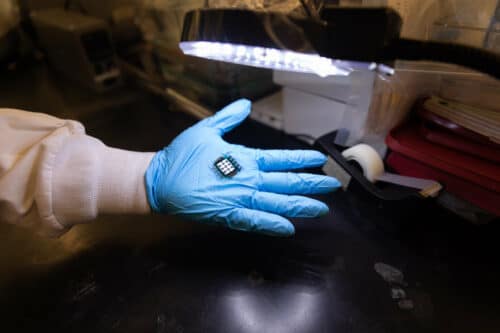This new prototype all-perovskite solar cell records power conversion efficiency of 27.4% and can be widely adopted globally as it also offers lower manufacturing costs.

Researchers from University of Toronto Engineering, Northwestern University and the University of Toledo have developed an all-perovskite tandem solar cell with extremely high efficiency and record-setting voltage. This new prototype demonstrates the potential to overcome key limits associated with traditional silicon solar cells, while also offering a lower manufacturing cost.
Unlike the traditional solar cells which are made from wafers of extremely high-purity silicon, perovskite solar cells are built from nano-sized crystals that can be dispersed into a liquid and spin-coated onto a surface using low-cost, well-established techniques. “In our cell, the top perovskite layer has a wider band gap, which absorbs well in the ultraviolet part of the spectrum, as well as some visible light,” says Chongwen Li, a postdoctoral researcher in Sargent’s lab.
The tandem design enables the cell to produce a very high open-circuit voltage, which in turn improves its efficiency. But the key innovation came when the team analyzed the interface between the perovskite layer, where light is absorbed and transformed into excited electrons, and the adjacent layer, known as the electron transport layer. “Excited electrons were moving easily into the electron transport layer, but in others, they would just recombine with the holes they left behind. Those electrons were being lost to the circuit.”
To eliminate this lose, researchers coated a substance known as 1,3-propanediammonium (PDA) onto the surface of the perovskite layer. “When we added the coating, we got much better energetic alignment of the perovskite layer with the electron transport layer, and that led to a big improvement on our overall efficiency,” said postdoctoral fellow Hao Chen, another of the co-lead authors.
This prototype cell measures one square centimeter in area, and produces an open-circuit voltage of 2.19 electron volts, which is a record for all-perovskite tandem solar cells. Its power conversion efficiency was measured at 27.4%, which is higher than the current record for traditional single-junction silicon solar cells.













